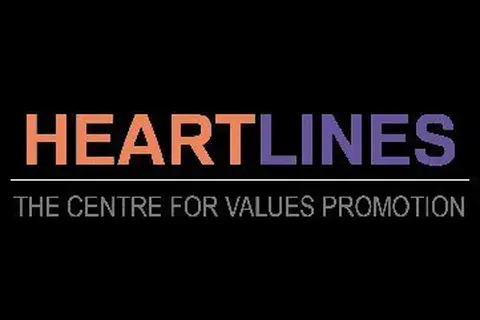Heartlines CEO announces new project
Heartlines is pleased to announce its new project MAPP, which will be promoting Men’s Active Positive Presence in the lives of children.
The project will tackle the issue of fatherhood with an aim to bring about societal change by educating men and boys about the importance of children having a positive male presence in their lives.
Dr Garth Japhet, Heartlines founder and CEO, says the project has been in the pipeline for almost five years and, as with all of Heartlines projects, has been identified as an issue of national importance.
“We’re aware of the impact of maternal absence on a child, but I don’t think society is nearly as aware of the impact of not having – not necessarily a biological father – but an active man who has a positive presence in a child’s life. “
According to Statistics SA, South Africa has one of the highest rates of absent fathers in sub-Saharan Africa.
Statistics found that 62% of births recorded in 2017 did not have the father’s information on the birth certificate, alluding to failed paternity acceptance.
The 2017 survey found the biological fathers of 61.8% of children younger than 18 were absent from the household.
“Research shows that if a man is involved in the life of a child in its first 1000 days, which translates roughly into the first three years, the chances of them being involved in their lives are much higher,” says Garth. “So some of the messaging will be around being involved in the early stages of a child’s life.”
Pamela Kgare, Project Manager heading up MAPP, says a three year process to roll out the project will take place.
The first year is dedicated to researching the topic. Heartlines researchers have been studying literature, speaking to experts and laying the foundation for undertaking 20 focus groups.
These, says researcher Livhawani Maphorogo will take place in Gauteng, Mpumalanga, Eastern Cape and KZN, and give the researchers a sense of perceptions, attitudes and understanding of father absence.
“We will be chatting to fathers of different ages, young and old, mothers of different ages as well as grandparents to get an understanding of where people are at in terms of this issue in society,” she says.
Pamela explains the second year of the MAPP as a process of developing resources, with the help of researchers, experts and writers, which will be used for activations. A message design workshop is set to take place to where key themes will be identified and later developed into materials for TV, digital and print.
In the third year, activations will take place where teams will go out into communities to promote the active positive presence of men and fathers in the lives of children.
Funding for the project was received from Geneva-based organisation, Oak Foundation, which has a special interest in Africa. The project will run simultaneously in Uganda through a parallel research and activations phase.
“One of the issues that the Oak Foundation has a great interest in is the issue of child abuse. Research has shown that there is a direct connection between children being at a greater risk of abuse if they do not know positive, active men in their environment,” explains Garth.
“We invite people that would like to use our resources and become an advocate for the project to make contact with us. We’re not experts on the issue of father absence, but we are experts in taking an issue, understanding it and putting it into the type of resources and communication that people can get to grips with,” he adds.
Featured
